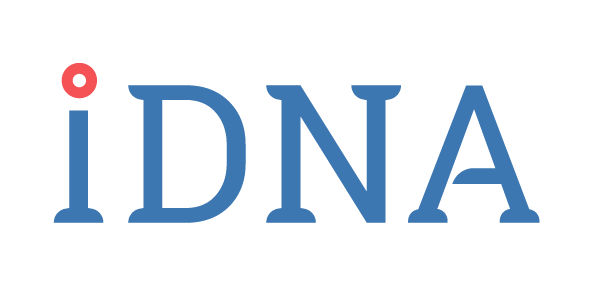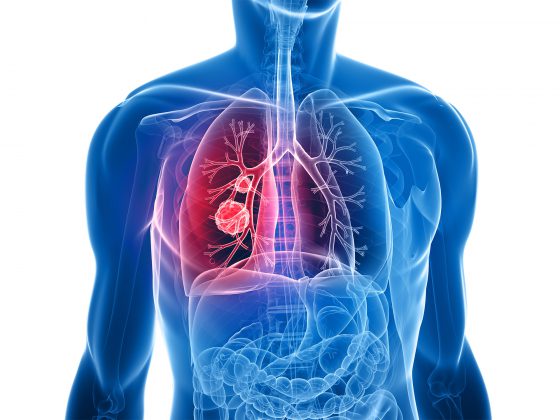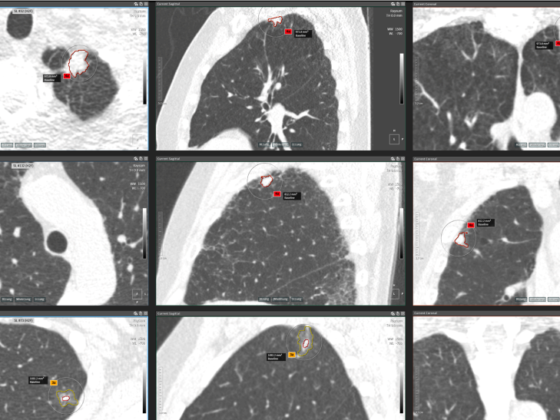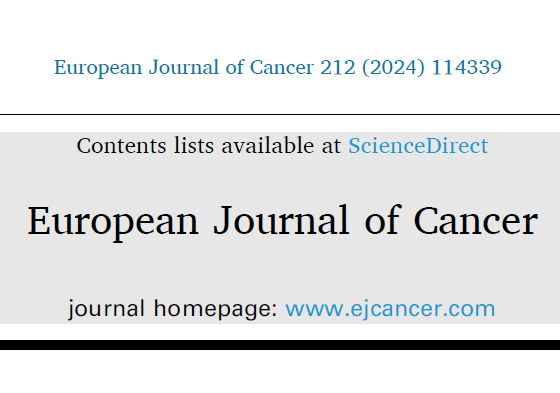Start of the 4-In-The-Lung-Run trial in the Netherlands
We are honored to be part of the European H2020 4-In-The-Lung-Run (4ITLR) Lung Cancer Screening trial with Dutch (ErasmusMC, Dutch Cancer Institute-AvL, Link2Care) and international partners (University College London, University of Nottingham, Institute Gustave Roussy (Paris), DKFZ Heidelberg, Rurhlandklinik / UK Essen, Institut Català d’Oncologia (Barcelona) and Fondazione IRCCS Instituto Nationale Dei Tumori (Milano)). The goal of the study is to evaluate personalised strategies in recruitment, screening intervals, smoking cessation and other co-morbidity (coronary heart disease and COPD) preventing strategies. This trial, based on the NELSON-study, intents to include 26,000 participants at high-risk of lung cancer, in screening sites in the Netherlands, Germany, Spain, Italy and France.
This week the recruitment in the Netherlands has started, approximately 400,000 Dutch people between the ages of 60 and 79 in 3 regions will receive an invitation to participate.
“This study is intended for people who smoke for a long time in their lives or who have smoked for a long time in the past. Early detection of lung cancer, even before it causes symptoms, is also known as lung cancer screening or a population screening,’ explains researcher dr. Carlijn van der Aalst from ErasmusMC.
“In the Netherlands, about 14,000 people are diagnosed with lung cancer every year and at least 10,000 people die from this disease every year. Unfortunately, lung cancer is often difficult to treat when it causes symptoms.’
Vital importance
The 2020 NELSON study shows that early detection of lung cancer with a CT scan in smokers and ex-smokers can reduce lung cancer deaths by 25% or more. For the Netherlands, this means that with lung cancer screening, about 1500 to 2500 fewer people will die of lung cancer every year.
With the pilot population study 4-IN-THE-LUNG-RUN that is now going to run in the Netherlands, Germany, Spain, Italy and France, the researchers want to answer some important questions. One of these is: how do we reach and inform the people who benefit most?
Another important question is: how frequent should a participant be screened with a CT scan? In 8 out of 10 participants, no relevant findings are expected to be found at the first examination. Is a new CT scan already needed after a year, or would an interval of two years result in the same benefits.
Whatever the researchers want to emphasize, quitting smoking, or better, never starting smoking is the best way to prevent death from lung cancer. ‘The smoking cessation coaches are ready for participants who still smoke and need support,’ says Van der Aalst.
For those many people that have smoked or are still smoking, early detection – as will be performed in the 4-In-The-Lung-Run study – is the only way to reduce the serious consequences of lung cancer.
The invitations
The screening will start in AVL Center for Early Diagnosis of the Antoni van Leeuwenhoek. Other regions (including Link2Care Clinics Bilthoven) will follow.
AI reading
The Institute for DiagNostic Accuracy (iDNA) is responsible for quality control of the radiology in the trial and the CT screening. Prof. dr. M. Oudkerk, Chief Scientific Officer of iDNA and PI Radiology of the NELSON study, has implemented a research design to safely assess the independent effect of Artificial Intelligence in the reading of the CT scans. Prof. Oudkerk: “We have a manual reading by a radiologist and in parallel an AI reading done in our High Performance Cloud computing center in Bytesnet Groningen. We will compare the differences between the manual read and AI read. With 4ITLR we have a truly unique research design to safely evaluate the large scale use of AI in Lung Cancer Screening programs”. For the central AI reading iDNA has validated in the past years AI software, see also our other news item on this topic.
Early detection
Noticeable complaints often arise when the cancer is at a late stage. Only 3 out of 100 people are still alive after five years if the tumor is detected at a late stage (stage IV). When detected and treated in an early stage far before symptoms occur, there is a large improvement of survival. At an early stage (stage I), this is about 60 out of 100 people.
European funding
Together with many European experts in the field of lung cancer, the research is being conducted in the Netherlands, Germany, France, Spain and Italy. The Department of Public Health of Erasmus MC is coordinating the research under the supervision of Prof. H.J. de Koning. iDNA will coordinate the radiology under the supervision of Prof. dr. M. Oudkerk. In the Netherlands, the study was approved by the Minister of Health, Welfare and Sport after a positive advice from the Health Council (Gezondheidsraad). The study is funded by the European Commission.
See here for the press release of ErasmusMC and here for the Dutch Cancer Institute / AvL.
See here for 4ITLR participant website.




